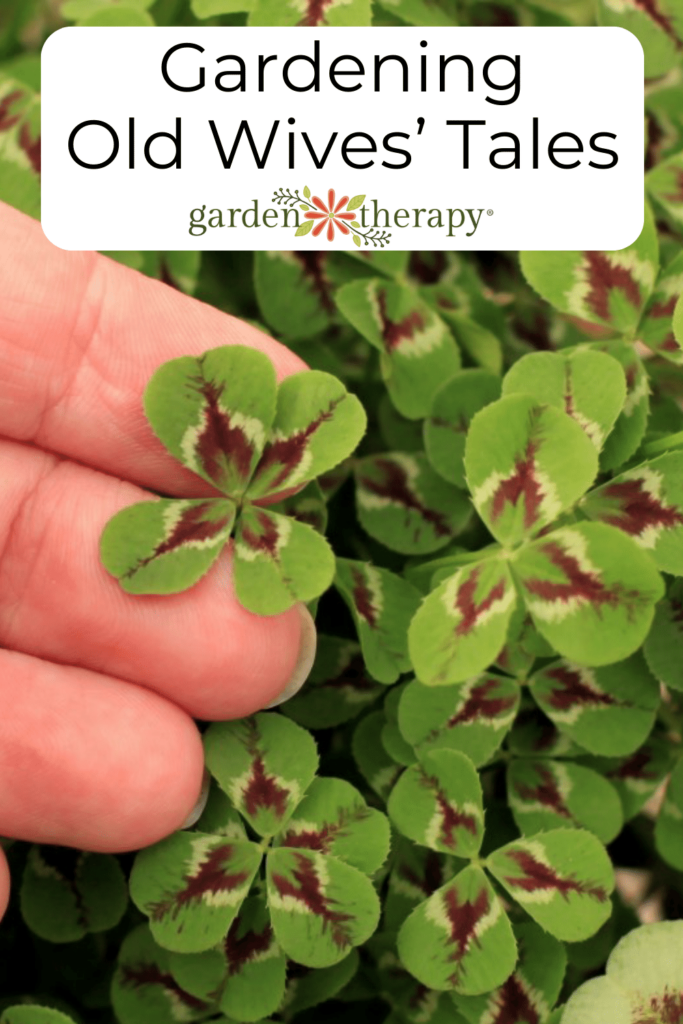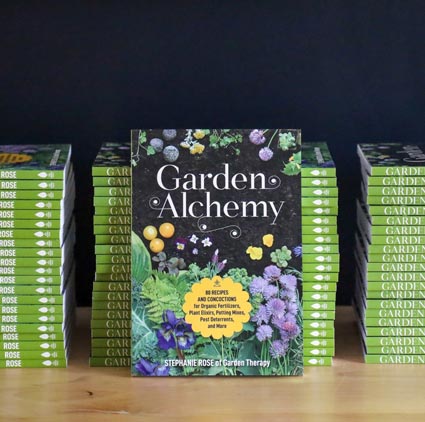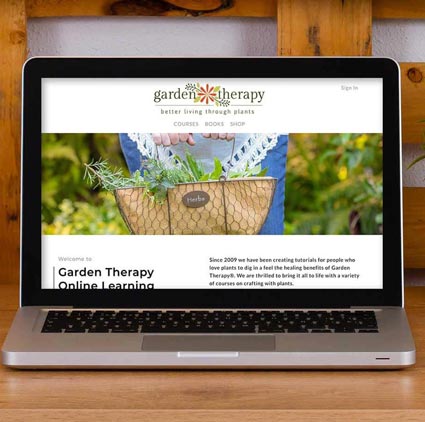Before the internet, or even the printing press, we relied on the knowledge passed down through to learn about gardening. While there is so much to know from our ancestors, some old wives’ tales about gardening just aren’t true. There are still a handful of gardening myths that people still use today. Instagram and TikTok are full of them! Let’s get to the truth behind these common gardening misconceptions.
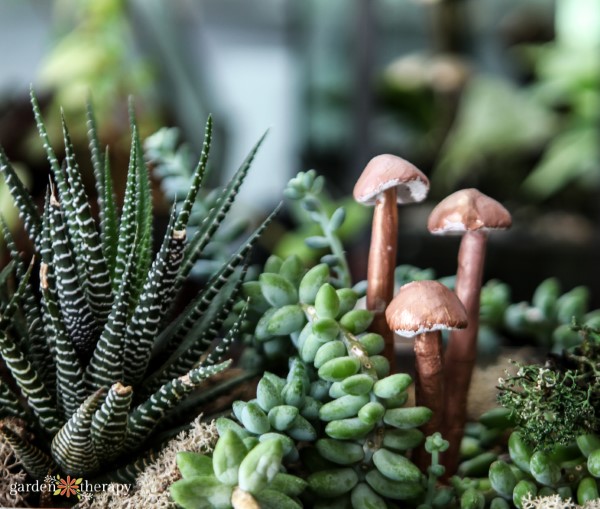
Bees are only attracted to the colour yellow.
Peeing on a jellyfish sting will alleviate the pain.
Turkey makes you sleepy.
If you swallow gum, it will take 7 years to digest.
These are just a handful of old wives’ tales I’ve heard over the years.
When it comes to gardening, some of these old wives’ tales about gardening can have a hint of truth to them. They’re all rooted in some science, even if they didn’t realize it.
BUT (and this is a big but), most of them are said to work better than they actually do. Or they at least started with good intentions. You’ll see what I mean when you keep on reading!
Here are the gardening myths I’ll be talking about today…
- A Note on Listening and Experimenting
- Adding Coffee Grounds to Soil
- Vinegar as a Weed Killer
- Banana Peels as Fertilizer
- Eggshells in the Garden
- Dish Soap as Insecticide
- Cinnamon as a Fungicide
- Talking to Plants
- Using Epsom Salts in the Garden
- Houseplants as Air Purifiers
- Gardening by the Moon Phases
- Using Compost Tea
- Plants Die of Old Age
- Plants Feel Pain
- Plants Don’t Need Oxygen
- More Old Wives’ Tales About Gardening
- More Fun Facts About Gardening
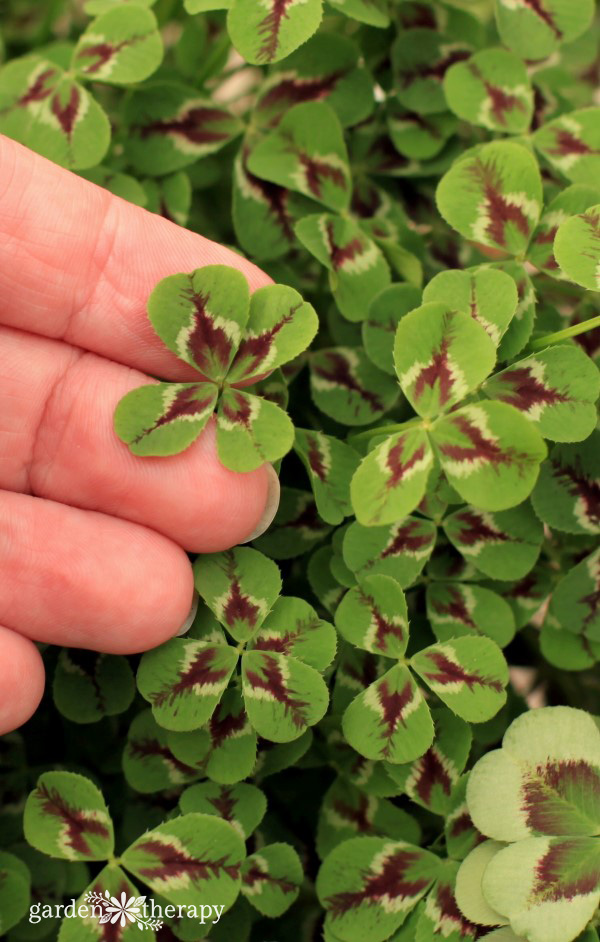
A Note on Listening and Experimenting
When it comes to old wives’ tales about gardening, some of them can actually be true. Making them not an old wives’ tale at all!
I’ve always sought to find a balance between science-based and grandmother methods that have been passed down.
While writing Garden Alchemy, I analyzed permaculture, herbalism, indigenous learning, and current science to develop organic concoctions for the garden. It’s all about striking a balance between these claims and fact-based evidence.
This review from Frau Zinnie sums it up. “[Garden Alchemy] empowers the reader to experiment with ways to fix common garden problems with minimal effort — and showing how there are so many things the home gardener can do before deciding to buy a “problem-solving” product at the store.”
From peat-free soil alternatives to using alfalfa as a fertilizer, there are many ways you can use organic elements effectively in the garden using Garden Alchemy as your guide.
And now, onto some myth busting!
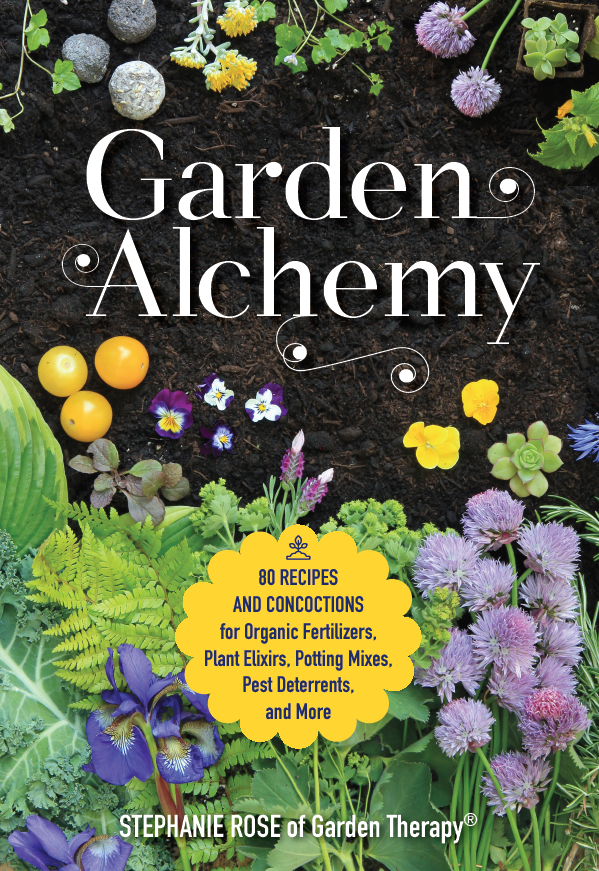
Adding Coffee Grounds to Soil
The gardening myth: coffee grounds are a great soil amendment, and you can mix them right into your soil.
While coffee grounds do have plant nutrients, they’re not a significant source. People add them directly to the soil; while you can do this, it’s better to use them as a compost ingredient. They’re a great compost ingredient and will provide more benefits to your plants once decomposed.
Read more on using coffee grounds in the garden.
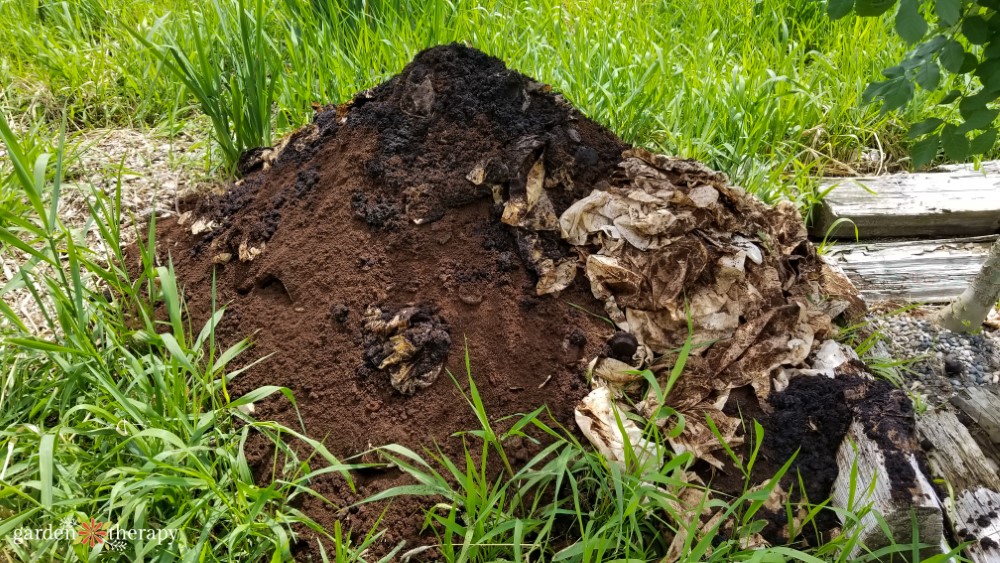
Vinegar as a Weed Killer
The gardening myth: vinegar is a natural herbicide that is better for the garden than commercial herbicides.
Vinegar burns plants upon contact, and it is gentler than most commercial herbicides. BUT it doesn’t discriminate against which plants it will harm, burning anything it comes into contact with. It also may kill the leaves, but not the root system below. So, while it may be a weed killer, it’s not as effective as you might like and could hurt your neighbouring plants.
Read more about the reality of using vinegar in your garden.
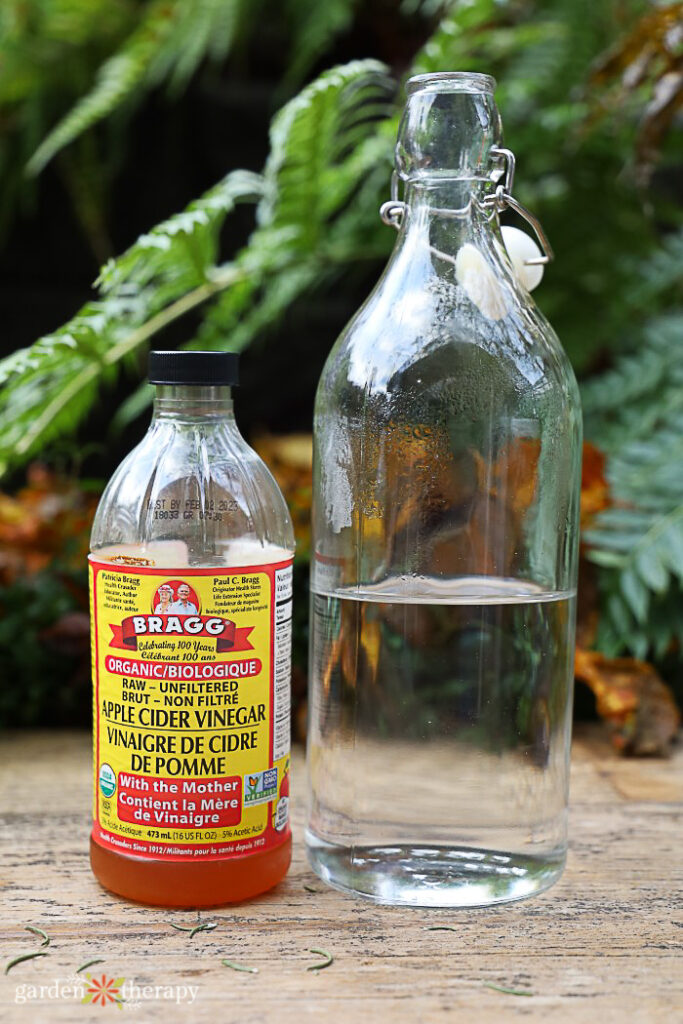
Banana Peels as Fertilizer
The gardening myth: you can soak bananas in hot water to create a potassium-rich fertilizer tea to pour on your houseplants and in the garden.
Very little of the banana peel decomposes when you soak it in water. As a result, the water doesn’t have much nutritional value. If you put a banana peel directly in the soil, it will take a long time to break down before it becomes useful to your garden. They’re not an immediate nutrient boost and work best when added to the compost pile.
Read more about how to use banana peels in the garden.
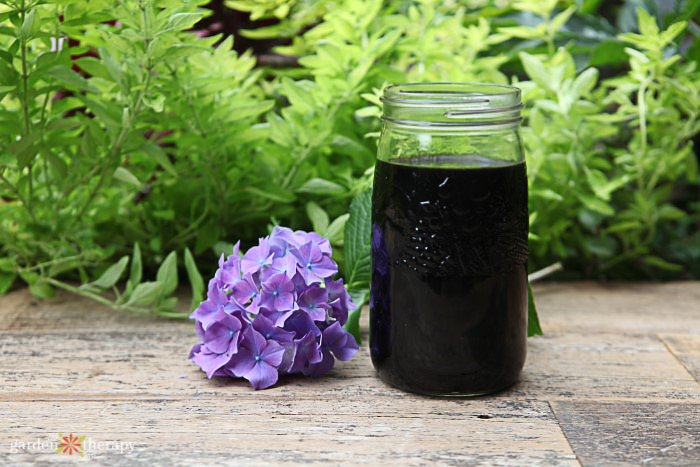
Eggshells in the Garden
The gardening myth: eggshells are a calcium-rich garden amendment that can help prevent blossom end rot from occurring.
Calcium deficiency is actually quite rare for soil. While blossom end rot occurs due to the plant’s lack of calcium, it’s not because there’s a lack of calcium in the soil but rather the plant’s ability to absorb the calcium. Furthermore, eggshells need to be fully broken down to provide calcium, and following a theme here, it takes a while to break down. They’re better off in the compost or in your worm bin.
Read more about using eggshells in the garden.
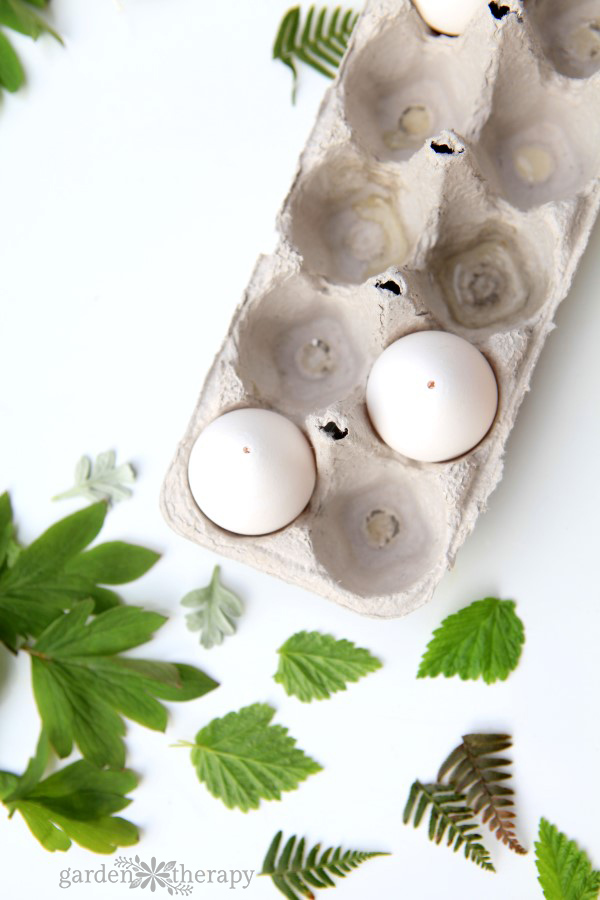
Dish Soap as Insecticide
The gardening myth: dish soap works as an insecticide spray.
Most commercial dish soaps are actually detergents, which contain ingredients that aren’t actually that healthy for the garden and your soil. Instead, you want to use fragrance-free castile soap. When mixed with water and other pest deterrent ingredients, it can help make your deterrent more sticky and useful when spraying it on pests.
Read more about how I use dish soap safely in my garden.
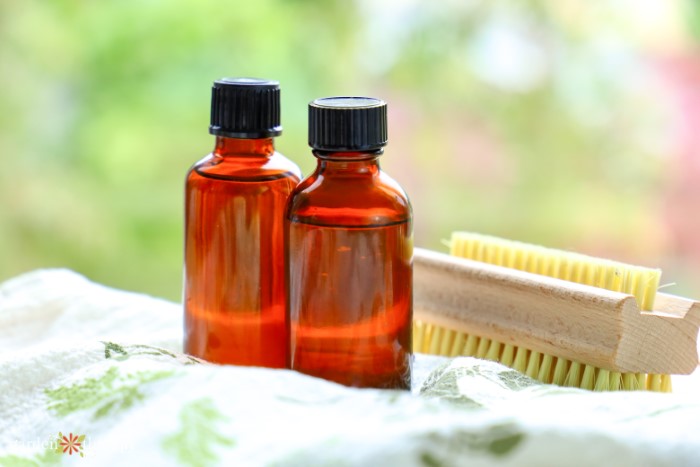
Cinnamon as a Fungicide
The gardening myth: you can sprinkle cinnamon in your potting soil to prevent damping off from affecting your seedlings.
Cinnamon is actually quite a powerful spice and has antibacterial and antifungal properties. Many studies have proven these properties in combating illnesses for humans, and some show this for plants as well. However, many of the studies use cinnamon from different species and in different forms than the powdered version we get at the grocery store.
Learn more about how to use cinnamon as an antifungal.
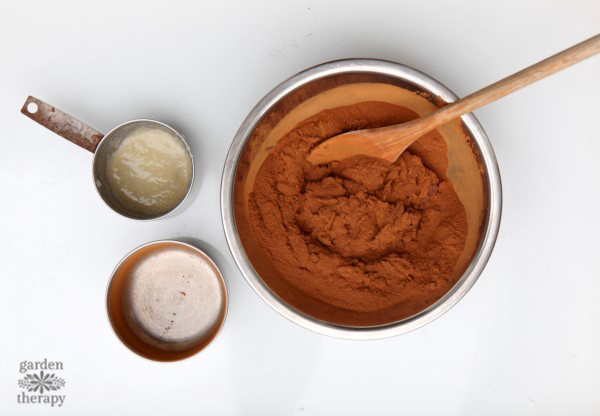
Talking to Plants
The gardening myth: if you speak kind words to your plants, they can actually grow better.
Sound vibrations are proven to affect plant growth positively. Does it have to be a positive affirmation? No. Your plant won’t know whether your words are good or bad. Music can actually have a greater effect on your plants. All in all, it doesn’t matter what kind of sound plants listen to, but they like noise!
Read more about the science behind talking to plants.
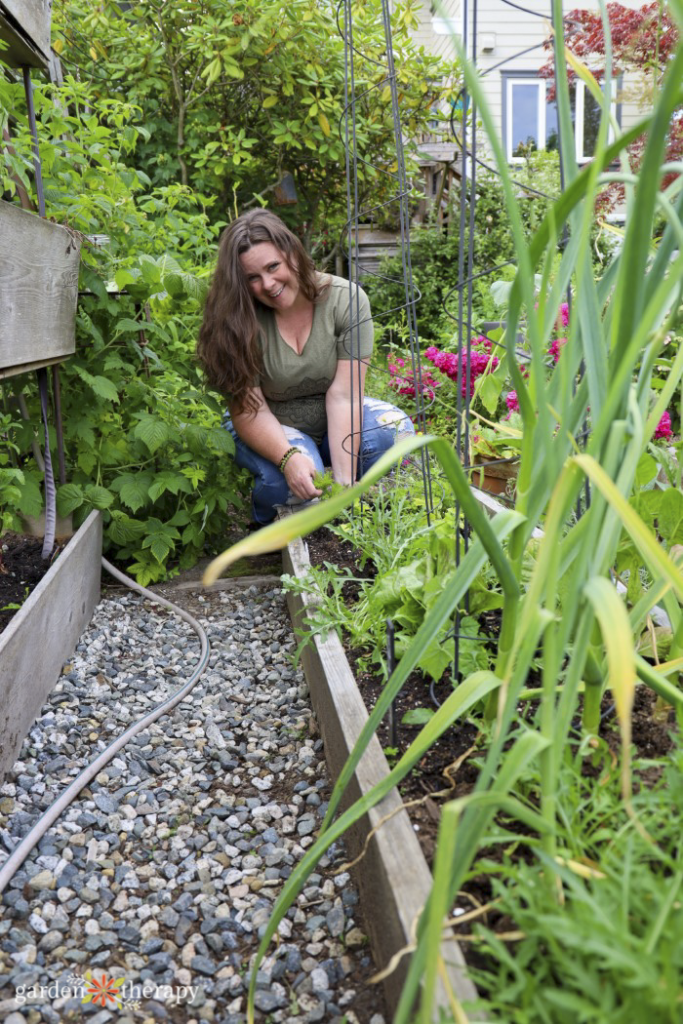
Using Epsom Salts in the Garden
The gardening myth: Epsom salts can prevent and cure blossom end rot and stop pests and other fungal diseases.
Epsom salts won’t help your plant when there’s a calcium deficiency, which is why your plant has blossom end rot. In fact, Epsom salts are a high source of magnesium and that can actually hurt your plant when it’s trying to get more calcium. There is also no real evidence to support that it can stop other pests and diseases.
Read more about the ways I DO use Epsom salts.
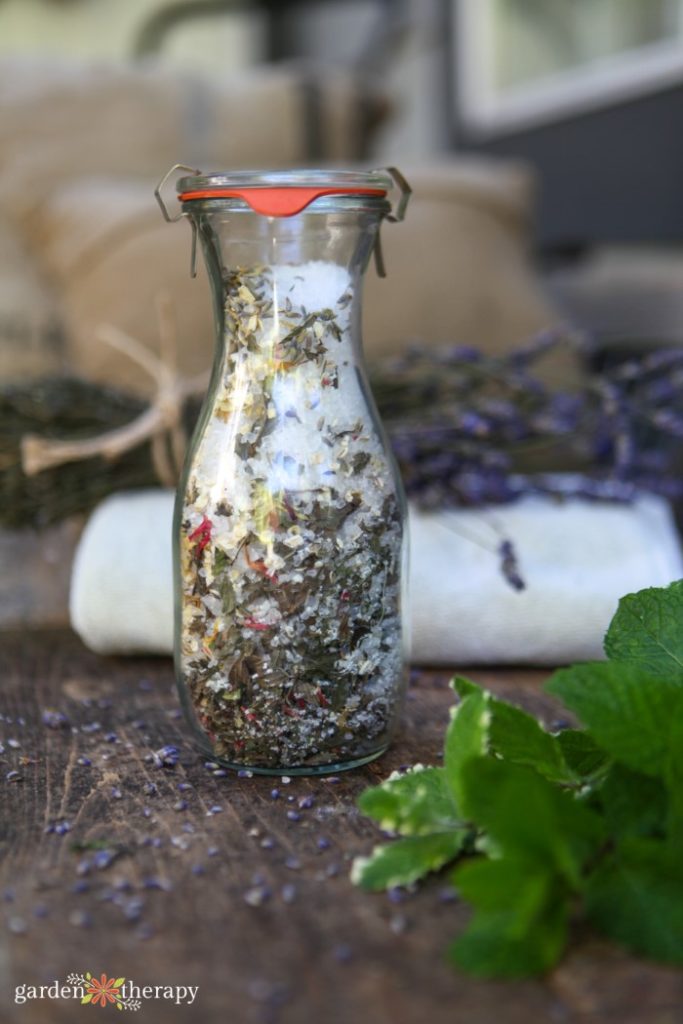
Houseplants as Air Purifiers
The gardening myth: having houseplants in your home can help to purify the air and improve air quality.
Without a doubt, plants are powerful tools to combat pollution and filter through harmful toxins. Many large studies (like the famous NASA one) proved that plants effectively filter air. However, most of these studies were done in small, enclosed spaces. Large, open houses will make it difficult for a few houseplants to purify the air to a point where it’s positively affecting your health. But they certainly don’t hurt!
Learn more about using houseplants as biofilters.
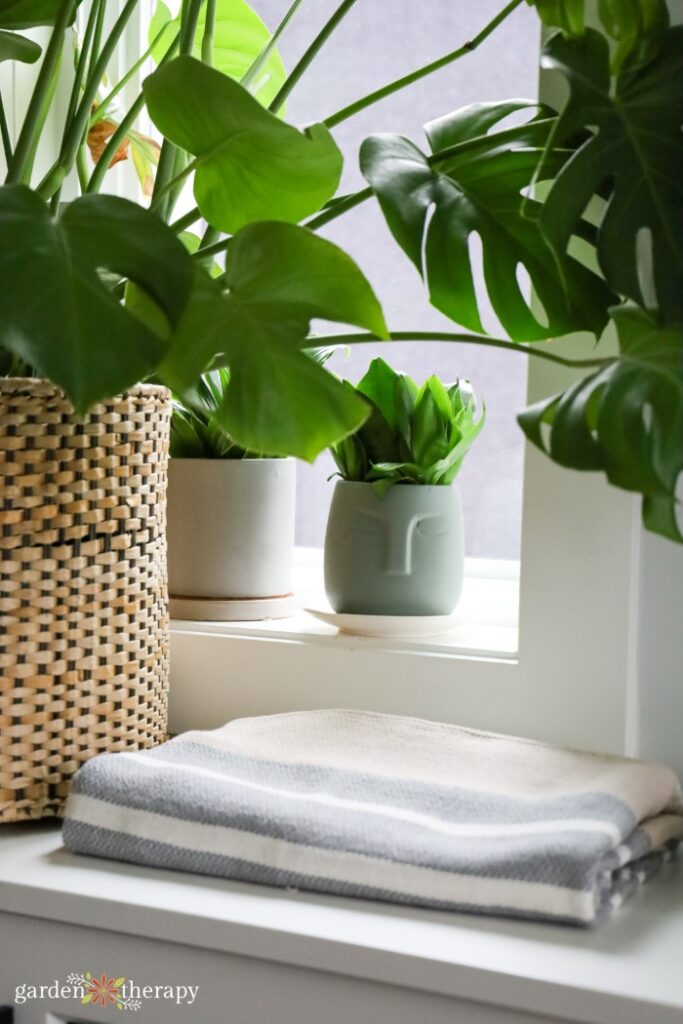
Gardening by the Moon Phases
The gardening myth: the lunar cycle can affect plant growth and can be a useful tool for planning planting and maintenance.
Since the moon can affect the earth’s tides, some believe it can also affect the water intake in plants. Depending on the moon’s phase, you can determine the best time to plant, cultivate, and harvest plants. There’s no real evidence to support this, but that hasn’t stopped other old wives’ tales about gardening and the moon to pop up.
Get inspired by planting a moon garden, a garden that is designed to be enjoyed in the moonlight.
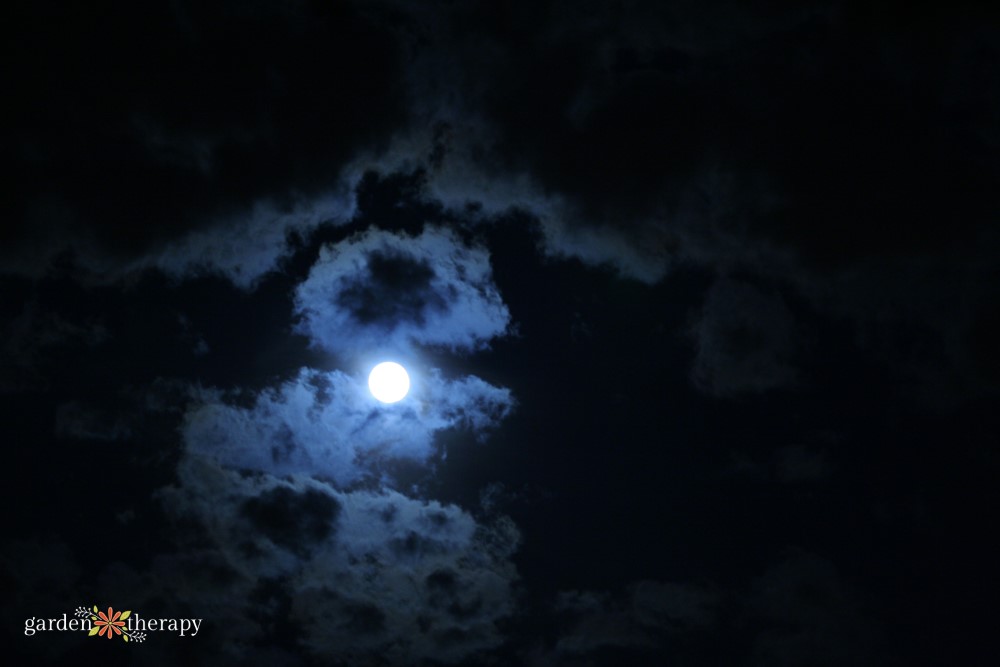
Using Compost Tea
The gardening myth: diluting compost and using compost leachate can be useful ways to improve soil and plant health.
There’s a big debate about whether or not compost tea is actually helpful for the garden. Compost tea is something I use in my own garden, and I have written about it quite a bit in Garden Alchemy. Those who are against compost tea say there’s not enough evidence to support the positive claims behind compost tea.
Learn more about compost tea and decide for yourself if it’s a worthwhile pursuit.
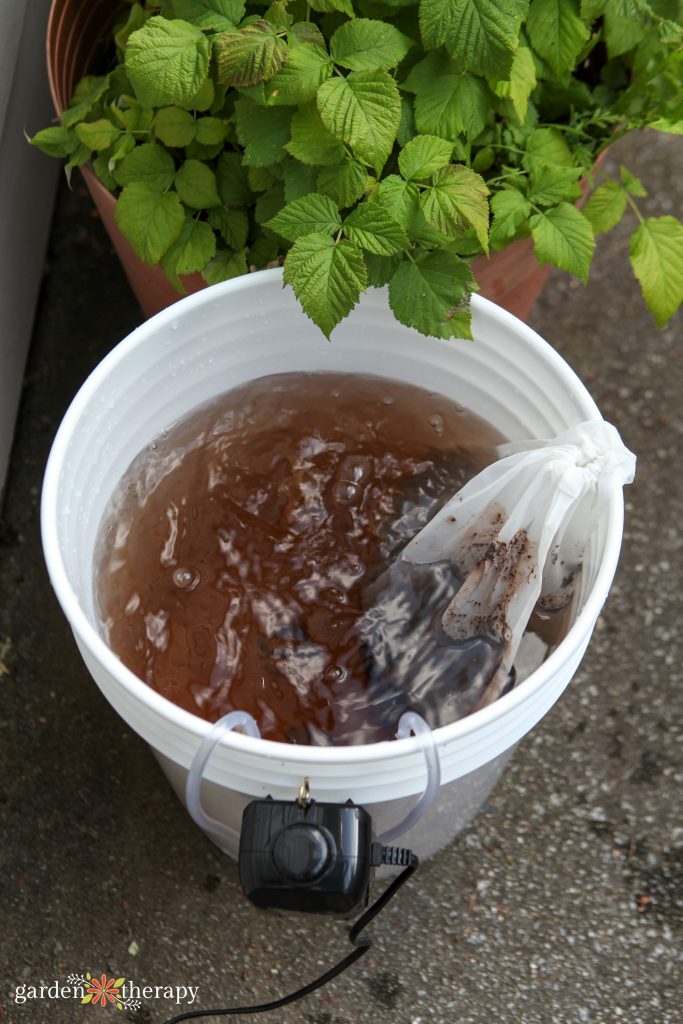
Plants Die of Old Age
The gardening myth: like us, plants experience aging and will eventually die as they get old.
Plants do not age the same way that we do. In theory, plants have infinite growth potential as they produce more leaves, flowers, stems, and roots. A plant can keep producing new parts to replace their old ones as long as they like. But as they age, they often get damaged over time and become weaker. This means the older a plant is, the more likely it is to fall victim to a pathogen.
Learn more about the science behind aging plants.
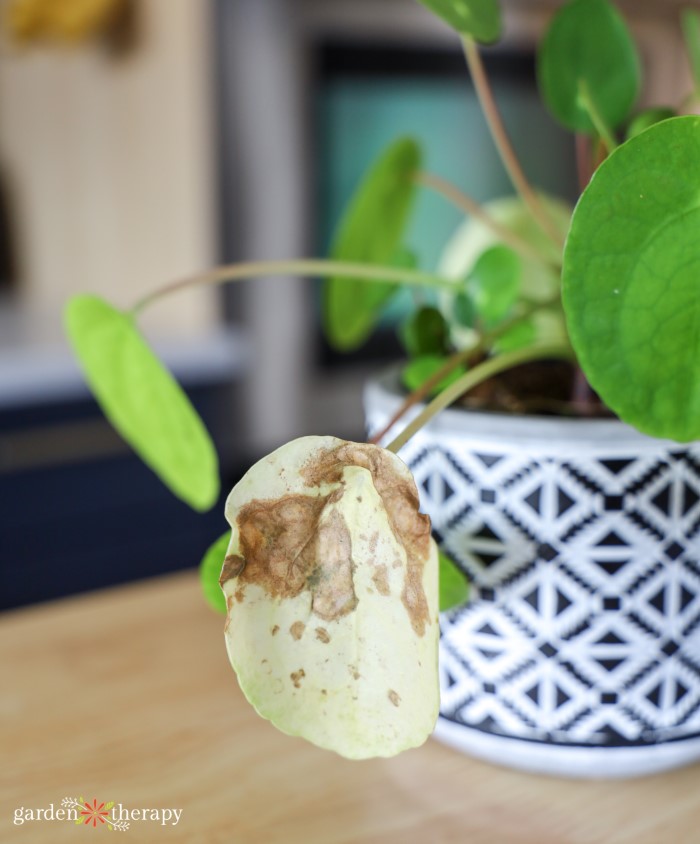
Plants Feel Pain
The gardening myth: when you snip or damage a plant, you’re hurting it.
Plants have no pain receptors; they don’t feel the same way we do. However, they do experience stress and will react to poor conditions. For instance, I’ve seen how my garden reacts after lots of forest fire smoke has been in the air. Plants will respond to their environment but don’t have feelings.
Read more about the science behind plant stress and even how they communicate with each other.
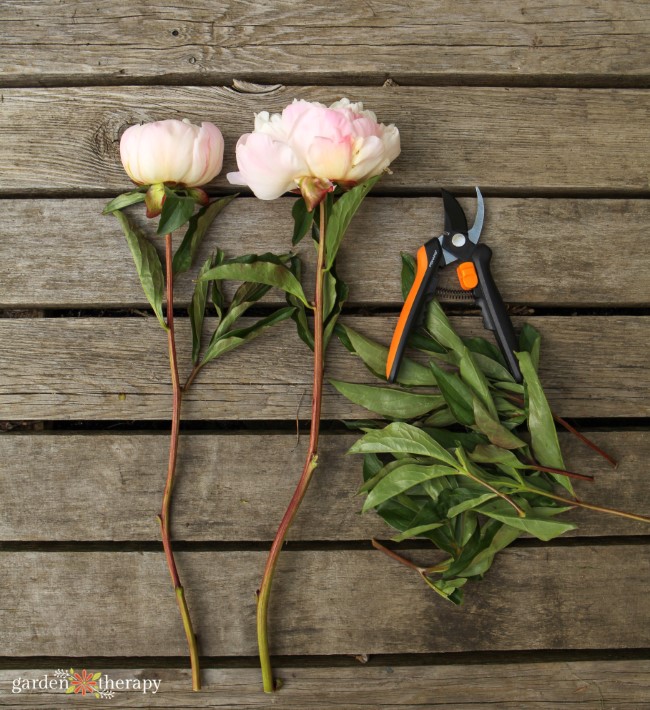
Plants Don’t Need Oxygen
The gardening myth: plants take in carbon dioxide and produce oxygen.
This one isn’t actually a myth per se, but only half of the full story. During photosynthesis, plants take carbon dioxide from the air alongside water from the ground to turn it into sugars and oxygen. The plant uses the sugars, and the oxygen is a by-product. However, during the photosynthesis process, plants do use some oxygen. They just need a fraction of it compared to us.
Learn more about the science behind plant respiration.
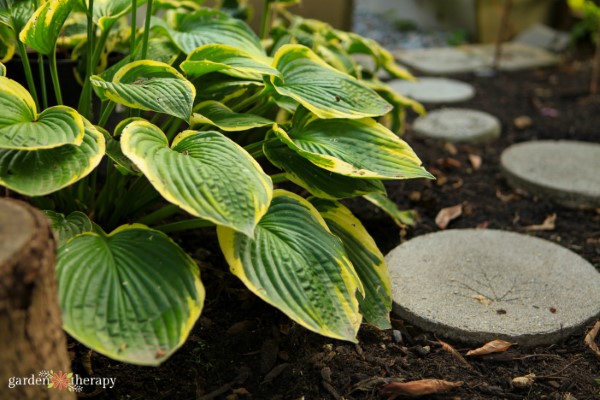
More Old Wives’ Tales About Gardening
An old gardening superstition is that when you thank someone for gifting you a plant or a flower from someone’s garden, the original plant will die or won’t bloom again.
What other old wives’ tales about gardening have you heard? Let me know in the comments below. I’d love to add to this list and do some more digging.

